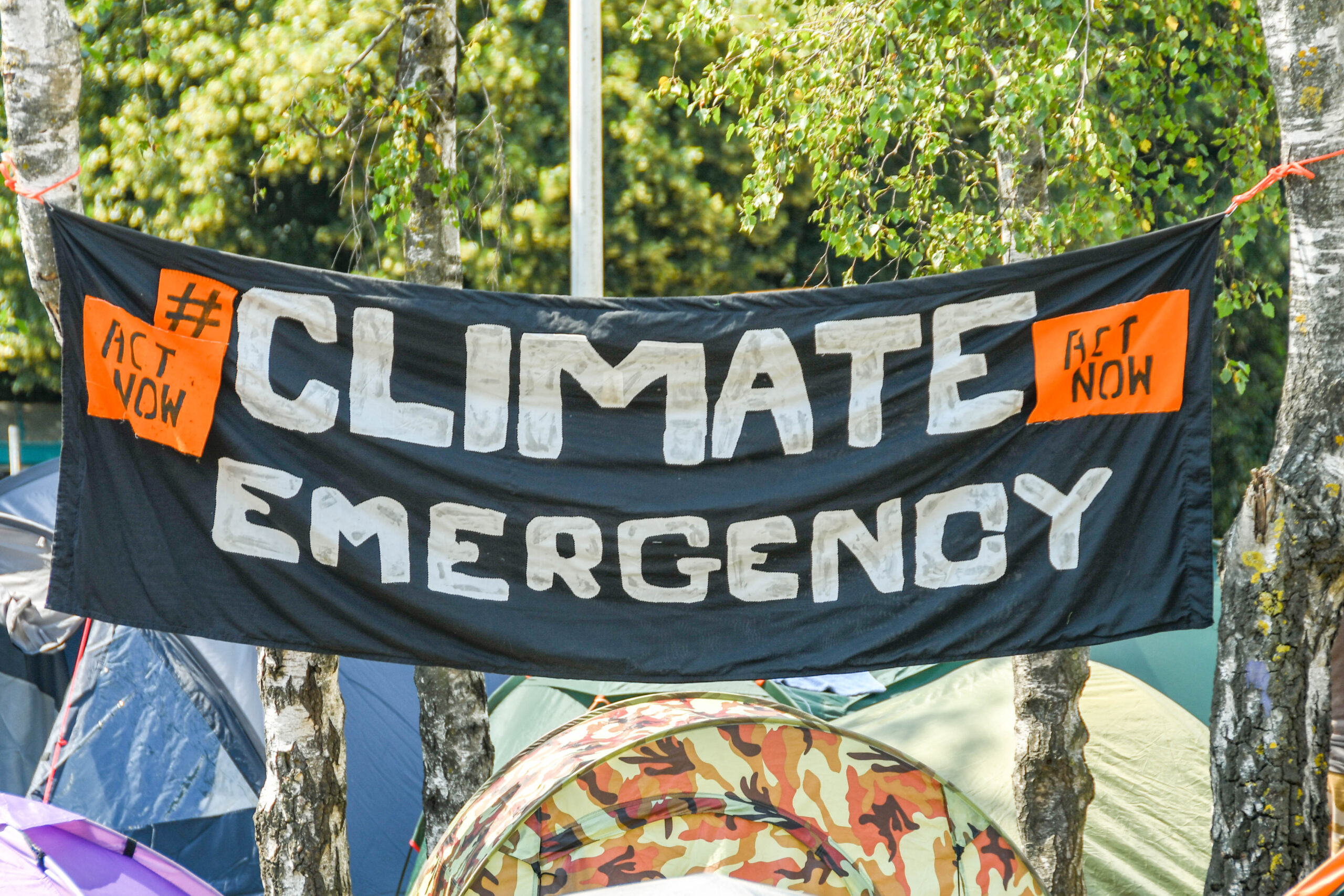By: Geneva Bass
As firms and consumers brace against the Climate Crisis, the market for carbon offsets soars to new heights.
Saturday, November 6th, 100,000 people flooded the streets of Glasgow, Scotland in climate protest as world leaders convened for COP26. Swedish teen climate activist Greta Thunberg denounced COP26 as “a failure” and “a two-week-long celebration of business as usual.”
“The eyes of all future generations are upon you,” Thunberg told world leaders two years ago at the UN Climate Summit on September 23, 2019. “And if you choose to fail us, I say – we will never forgive you.” The same month, the Guardian reports that over 6 million people across over 4,500 locations and 150 countries participated in protests and strikes to bring awareness to climate change. An organizer of the protests, 350.com, reports that the number was over 7.6 million.
The twenty-first century is faced with what the United Nations calls a “Climate Crisis.” Since the late 19th century, the Earth’s temperature has risen approximately 1.18℃ (2.12℉) according to NASA due in large part to human activity and CO2 emissions. The Greenland and Antarctic ice sheets are rapidly melting, glaciers worldwide are retreating, sea levels are rising, surface ocean water acidity is increasing, and extreme weather events are becoming more commonplace.
The youngest generations, Millennials and Generation Z, are demanding change. Nielsen reports that 73% of global consumers report they “would definitely or probably change their consumption habits to reduce their impact on the environment.” The Conference Board Global Consumer Confidence Survey reported that “88% of surveyed consumers said that it is extremely or very important that companies implement programs to improve the environment.”
In international business, market orientation has already begun. Corporate Social Responsibility initiatives are becoming standard and expected, not only in appealing to the consumer but also in talent acquisition and managing climate-related risk.
“Climate risk is investment risk,” multinational investment management corporation BlackRock’s CEO Larry Fink concluded in his 2020 letter to chief executives. He reaffirmed this statement in his 2021 letter. With this major market shift, companies have sought the most economic path towards fighting climate change and building a positive perception of their Corporate Citizenship.
Their solution: buying carbon neutrality. In 2016, companies spent $191.3M on 63.4M metric tons of CO2 carbon offsets according to the sustainable analytics firm Ecosystem Marketplace. In the first quarter of 2021 alone, companies have already purchased over 38.6M metric tons, an 81% increase from the first quarter of 2020. Although carbon offsets still represent only a small fraction of total Greenhouse Gas (GHG) emissions, the intangible commoditization of GHG reduction activities has become a rapidly growing industry.
In 2018, the carbon offsets market was worth $300M according to Ecosystem Marketplace. The market could be worth $100Bn by 2030 according to the Taskforce on Scaling Voluntary Carbon Markets’ Mark Carney, UN Special Envoy for Climate Action and Finance and Finance Adviser to UK Prime Minister Boris Johnson. McKinsey provides a more conservative estimate at over $50Bn by the end of the decade.
This extreme growth has been fueled by major corporate commitments to carbon neutrality. As of October 2020, 91 Fortune 500 companies had publicly committed to carbon neutrality by 2030, offsetting all of their GHG emissions.
The crowd of companies committing to carbon neutrality and entering the carbon offset market includes even Big Energy oil and gas companies. Royal Dutch Shell has been selling “carbon-neutral” liquified natural gas since 2019. TotalEnergies SE sold its first “carbon neutral” shipment in 2020. Occidental Petroleum Corp. entered the market for “carbon-neutral oil” earlier this year.
Offsets calculated by Macquarie for Occidental’s venture into “carbon-neutral oil” consisted highly of investments in renewable energy. Occidental also aims to begin selling what it calls “net-zero oil” in the future, oil offset by the purchase of machines that would remove CO2 from the air. Industries such as Big Energy that cannot fully decarbonize are turning to the carbon offsets market as a Corporate Social Responsibility initiative to differentiate their products, appeal to consumers, remain competitive, and guard their reputations.
Carbon offsets commonly consist of forest conservation and cultivation efforts, although they can also consist of investment in solar, wind, thermal, and energy-efficient projects or investment in the Cap-and-Trade market. While the private market for carbon offsets has surged in value, there are also many nonprofits operating in the space.
Vanderbilt pledged in 2018 to be carbon neutral by 2050 and is on track to become the first member of the Association of American Universities to reach carbon neutrality. A major part of this commitment is Vanderbilt’s purchase of carbon offsets from the nonprofit organization Climate Vault, which operates in established Cap-and-Trade markets. A Cap-and-Trade market is a market in which companies trade their government-awarded carbon allowances. Climate Vault purchases carbon allowances in the Cap-and-Trade market but does not resell them through trade, thus reducing the total amount of government-permitted carbon emissions by companies by reducing the number of carbon allowances in circulation.
The idea that even Big Energy, the world’s single-most polluting industry, can declare itself “carbon-neutral” sows complexity into the case for whether purchasing carbon offsets can truly counterbalance ongoing and large-scale environmental noxiousness. Bloomberg reported in December 2020 that carbon offsets purchased from the Nature Conservancy, the world’s largest environmental group, by a number of high-profile companies such as JPMorgan Chase & Co., Walt Disney Co., and BlackRock, Inc. were for land or forest that was already well-protected. As the carbon offsets market rapidly expands, regulation is slow and the line between genuine Corporate Citizenship and greenwashing is nebulous.
Nevertheless, the carbon offsets industry is an industry that will continue to surge in the decades ahead as humanity, the firm, and the consumer attempt to fend off the impending Climate Crisis.




